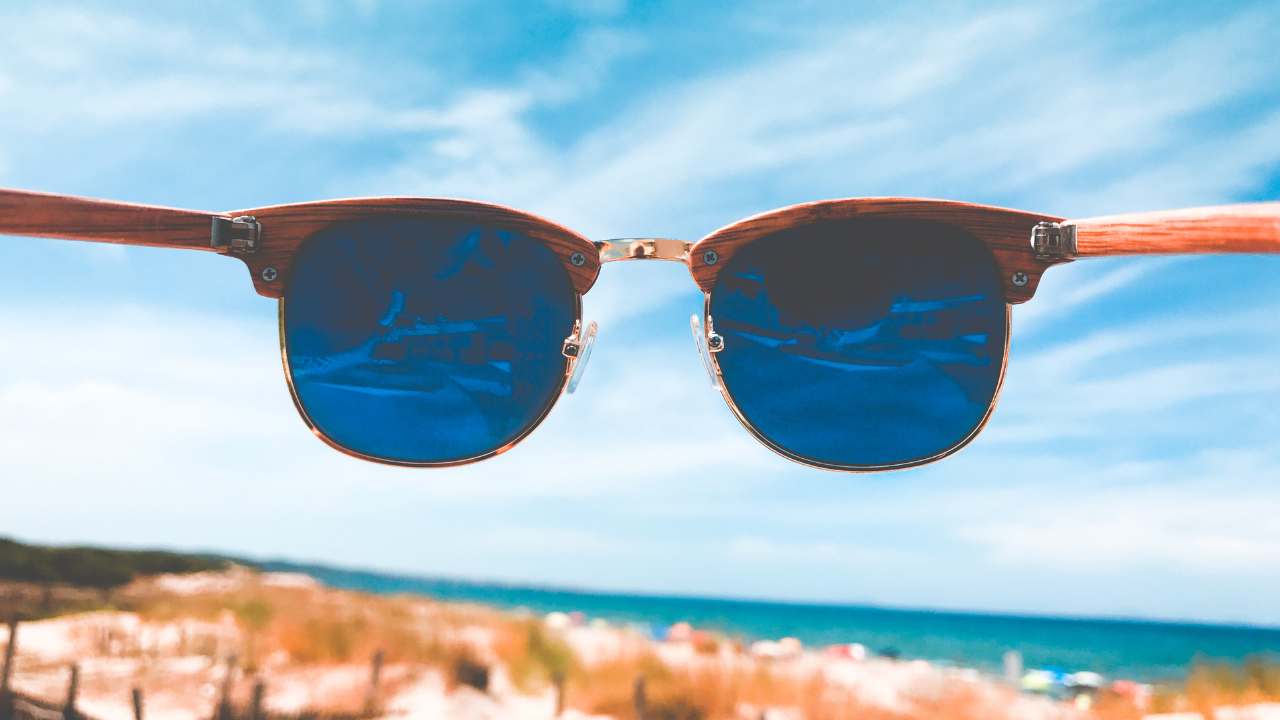What Are Polarized Glasses? Are Polarized Sunglasses Better?
Learn the truth behind polarized sunglasses and lenses. Discover how they work, why they're better, and whether you should invest in a pair.

Protecting our eyes from the harsh rays of the sun is important not only for comfort, but also for long-term eye health.
Polarized glasses have become increasingly popular due to their ability to reduce glare and provide better vision in bright sunlight. But what exactly are polarized glasses, and are they really better than regular sunglasses?
In this article, we'll explore the science behind polarized glasses, their benefits, different types of polarized lenses, and much more. You will find out which lens is best but if you have a lot of sunglasses you may want to learn about sunglass organizers to keep your space tidy.
The Science of Polarized Glasses: How They Work
Polarized sunglasses work by filtering out horizontal light waves and reducing glare, which makes them particularly useful for outdoor activities such as driving and fishing.
This technology, originated by Edwin Land in 1936, relies on a special type of filter that blocks out light that reflects off surfaces such as water, snow, or pavement, which can cause eye strain and fatigue.
Polarized lenses only allow vertical light waves to pass through them, making the vision clearer and more comfortable, especially in bright sunlight.

Benefits of Polarized Sunglasses: Better Vision and Reduced Glare
Polarized sunglasses reduce glare, which can be particularly useful for drivers who are exposed to bright sunlight reflecting off other vehicles or surfaces.
This can also be helpful for bikers, skiers, and other outdoor enthusiasts. Polarized lenses can offer a crystal clear view, which is especially helpful for individuals involved in particular professions like pilots, construction workers and soldiers.
Additionally, those suffering from eye conditions such as cataracts also benefit from this visual clarity.
Wearing Polarized Sunglasses vs Non Polarized Sunglasses
Non polarized lenses are generally not as effective at reducing glare and may even make it worse in certain situations.
In addition, non polarized lenses do not provide the same clarity of vision that polarized lenses do. Polarized sunglasses also offer UV protection, which regular sunglasses don’t always provide.
Although when you wear polarized sunglasses it is better for your eyes but having a non polarized option allows you to use your devices a little easier.
Who Needs Polarized Sunglasses? Understanding Different Use Cases
Different people need polarized sunglasses for different reasons. For instance, boaters and fishermen may rely on polarized sunglasses to better see under the surface of the water, helping them to spot fish and other underwater objects.
Runners and cyclists may appreciate the reduced glare, as it makes it easier to see and avoid potential obstacles on the road.
Those with sensitive eyes may also benefit from polarized lenses, which can reduce eye strain and fatigue when exposed to bright sunlight for prolonged periods.

When is wearing polarized lenses beneficial?
If you are in to outdoor activity such as:
- Running
- Biking
- Fishing
- Kayaking
- Driving
- Out in the snow with glare
- Have a lot of water around that produces glare
Most outdoor activities around water or snow tend to have a lot of glare from the sun. Polarized lenses block the sun's harmful rays and tend to be better for your eyes.
When you should use non polarized sunglasses.
If you are doing anything on a LCD screen you may want a blue light lens to reduce eye strain but a non polarized option will be best for you.
Activities for non polarized lenses:
- Reading from LCD screens
- Operating equipment that requires intense focus
- If you need more contrast for the terrain
Polarized sunglasses tend to make these activities more difficult.

How Polarized Glasses Improve Driving Safety: Tips for Choosing the Right Pair
Choosing the right pair of polarized sunglasses for driving is important.
Polarized lenses can help to reduce glare and make it easier to see while driving, but it's important to choose a pair that provides adequate protection from harmful UV rays.
Look for polarized glasses that provide 100% UV protection, and consider polarized lenses with a brown, copper, or amber tint, which can enhance contrast and improve depth perception.
Avoid polarized lenses with a gray or dark tint, as they can be too dark for driving, particularly in low-light conditions.
Polarized Sunglasses for Fishing: Why Anglers Swear by Them
Polarized sunglasses are particularly popular among fishermen, who rely on them to more easily spot fish and other underwater objects.
The reduction of glare provided by polarized sunglasses can make all the difference when it comes to finding fish in the water.
Polarized sunglasses with a mirror coating can also be particularly useful when fishing in shallow waters, as they can reduce glare reflecting off the sand and wave crests.
Are polarized lenses any good for fishing? We certainly think so as well as a vast majority of anglers!
The Different Types of Polarized Lens Materials: Which One is Right for You
Different types of polarized lens materials offer different benefits and drawbacks. For instance:
- Glass lenses are typically heavier than plastic lenses, but provide the best optical clarity and scratch resistance.
- Plastic lenses, on the other hand, are generally lighter and more durable than glass lenses, but are also more susceptible to scratching.
- Polycarbonate lenses are a popular choice due to their high impact resistance and affordability, while Trivex lenses offer similar benefits with the added benefit of superior visual clarity.

The Downsides of Polarized Glasses: Are There Any?
While polarized sunglasses offer many advantages, there are also some potential drawbacks to consider. For instance, polarized glasses can make it difficult to read LCD screens, as they can distort the image.
They can also reduce the visibility of certain objects on the road such as black ice or water puddles.
Additionally, some people may experience discomfort or headaches when wearing polarized glasses for extended periods, particularly if they are not accustomed to them.
Polarized Glasses vs. Mirrored Glasses: Which is Better for Sun Protection?
Both polarized and mirrored glasses offer benefits when it comes to sun protection.
Polarized lenses are great for reducing glare and enhancing contrast, while mirrored lenses provide additional reflection of bright light.
Ultimately, the best choice will depend on personal preference and the intended use.
For instance, mirrored glasses may be a better choice for snow sports, while polarized glasses may be better for water sports or driving.
Caring for Polarized Glasses: Maintenance and Cleaning Tips
To ensure that your polarized glasses last as long as possible, it's important to take care of them properly.
This includes using a microfiber cloth to clean the lenses, avoiding harsh chemicals or abrasive materials, and storing them in a protective case when not in use.
Additionally, it's important to avoid leaving your polarized glasses in areas of extreme heat or cold, as this can cause the lenses to warp or crack.
Final Thoughts
Whether you're fishing on a sunny day, driving on a bright highway, or simply spending time outdoors, polarized glasses can help to protect your eyes and improve your visibility. By understanding how polarized glasses work and what types of lenses are available, you can choose the best option for your needs and enjoy clear and comfortable vision all day long. With the proper care and maintenance, your polarized glasses will continue to provide you with many years of use and enjoyment.

